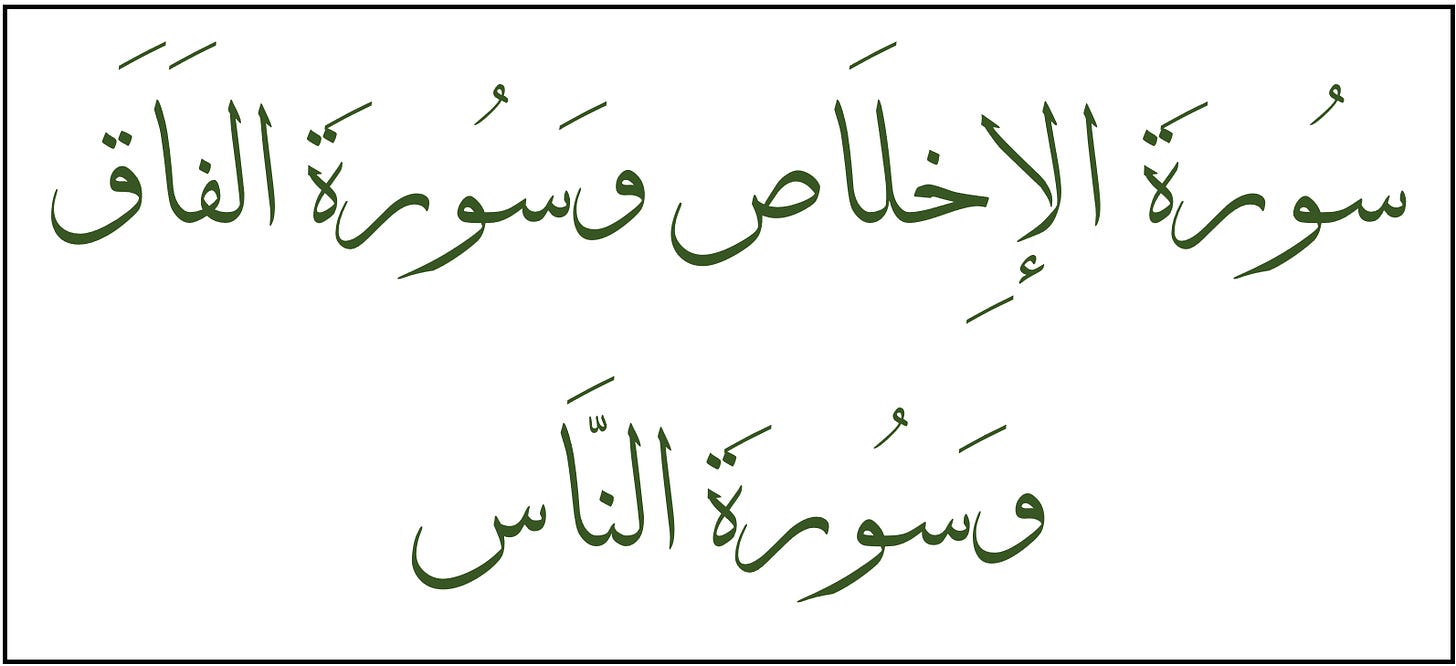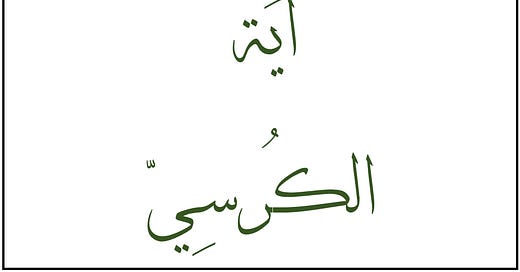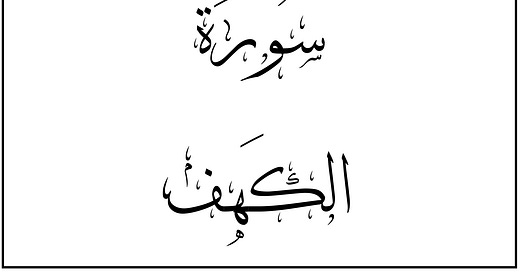
Sūrah Group: The Last Ten Suwar (Part 3)
Final part of observations on the ordering and arrangement of the last ten suwar
Last week we continued our look at how the final ten suwar of the compiled Quran appear to progressively develop and establish a single theme: the restoration of Abrahamic monotheism to (and through) its capital in Mecca. Those ten suwar, which we have analyzed individually in past posts, are as follows:
As a reminder, we must turn to Abraham’s prayer from Sūrah al-Baqarah to best understand the logic in their ordering. The prayer is:
When Abraham said, “My Master, make this a secure city (baladan ‘āminan), and provide its people with fruits—whoever among them believes in God and the Last Day.” Allah said, “As for whoever disbelieves, I will give him enjoyment for a little while, and then I will force him into the punishment of the Fire (nār). What a terrible destination!”
When Abraham was raising the foundation of the House, and Ishmael: “Our Master, accept from us. Truly You are the Hearing, the Knowing.
Our Master, make us submitters to you and make from our descendants a nation submitted (muslim) to you. Show us our rites and accept our repentance. Truly You are the Returner, the Merciful.
Our Master, send them a messenger from among them who will recite your āyāt, teach them the Scripture and wisdom, and purify them. Truly You are the Almighty, the Wise.” (2:126-130)
Last week’s post focused on suwar 108-111. This week we will conclude and observe how the last three suwar (112-114) are logically connected.
Suwar 105-111 played out the fulfillment of Abraham’s prayer in a logical sequence. The next sūrah—112, Sūrah al-Ikhlāṣ (Sincerity) also translated as Purity—recaps the purpose of the Messenger’s entire mission: the restoration of monotheism. The title of the sūrah, Purity, calls to mind Abraham’s prayer that Allah ﷻ may raise among his descendants a messenger who would “purify them” (yuzakki-him). Interestingly, this sūrah also picks up the end rhyme that the previous sūrah ended in.
Say, “He is Allah, One (aḥad). Allah, the Eternal (ṣamad). He does not beget, nor is begotten (yūlad). And there is nothing comparable to Him (aḥad).”
Finally, the sūrah group, and the Quran as a whole, concludes with two suwar which form a pair. Both of these suwar are prayers, so that just as the Quran began with a prayer (Sūrah al-Fātiḥah), it ends with prayers. These two suwar are known collectively as al-Mu'awwidhatān (The Two Prayers of Refuge).
The first of these, Sūrah 113 - al-Falaq (Daybreak), is a prayer of refuge from human and supernatural agents who may seek to externally harm a person and his commitment to Allah ﷻ.
Say, “I take refuge in the Master of Daybreak. From the evil of whatever He has created, and from the evil of the darkness when it overtakes, and from the evil of those who blow on knows [i.e., practice sorcery], and from the evil of the envier when he envies.”
Sūrah 114 - an-Nās (Mankind), is a prayer of refuge from human and supernatural agents who may seek to lead a person away from the Straight Path by casting inside of his heart doubts or messages, referred to as “whispers,” and then retreating.
Say, “I take refuge in the Master of mankind, the King of mankind, the God of mankind, from the evil of the slinking whisperer. The one who whispers into the chests of mankind, from among the jinn and mankind.”
Thus concludes our observations of the sequence of the last ten suwar. We have seen that the individual suwar of the Quran exhibit both linear coherence and symmetry. And now we have also observed linear coherence between the suwar themselves. This is just another example of the intricate structure the Quran possesses for those who reflect on it.
والله أعلم - And Allah knows best
Sources
Ali Khan, Nouman and Sharif Randhawa. Divine Speech: Exploring the Quran as Literature. Bayyinah Institute, 2016










